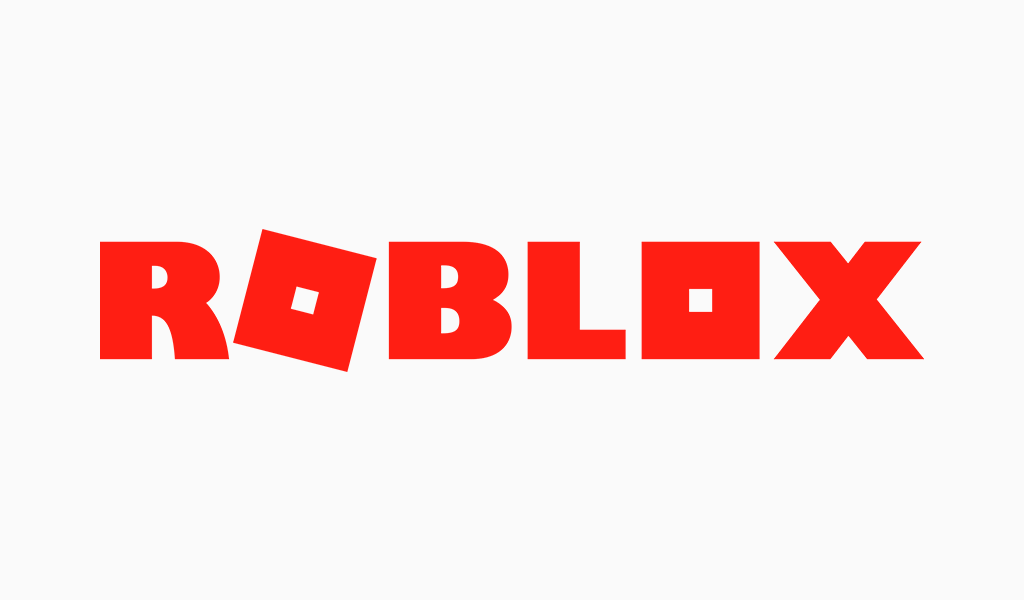Anúncios
Personal loans can be a powerful tool to manage your finances, whether you’re consolidating debt, funding a large purchase, or covering unexpected expenses.

→ Also see our full article on the Secrets to Getting the Best Personal Loans.
In this guide, you’ll learn the ins and outs of personal loans, from their benefits to tips on finding the best deals.
Keep reading to uncover valuable insights and practical advice.
Understanding Personal Loans
Definition and Purpose
A personal loan is a type of unsecured loan that allows you to borrow a fixed amount of money from a lender, which is typically repaid in monthly installments over a set period. The primary purpose of personal loans is to provide individuals with the financial flexibility to cover a wide range of expenses, such as medical bills, education fees, home improvements, or debt consolidation.
Unlike other loans, personal loans do not require collateral, making them accessible to a wider audience. However, this also means that lenders heavily rely on your credit score and financial history to determine your eligibility and interest rates. Knowing the purpose and definition of personal loans can help you better assess if it’s the right financial tool for your needs.
Types of Personal Loans
Personal loans come in various forms, each suited for different financial needs and situations. The most common types include:
- Fixed-Rate Loans: These loans have a consistent interest rate throughout the repayment period, providing predictable monthly payments.
- Variable-Rate Loans: The interest rate on these loans can fluctuate based on market conditions, which can lead to varying monthly payments.
- Debt Consolidation Loans: Specifically designed to combine multiple debts into a single loan with a potentially lower interest rate, simplifying monthly payments.
- Personal Lines of Credit: Unlike a traditional loan, this operates more like a credit card, providing access to funds up to a specific limit, and you only pay interest on the amount you borrow.
Understanding the different types of personal loans is crucial in selecting the one that best fits your financial objectives. It’s essential to evaluate the terms, interest rates, and potential fees associated with each option before making a decision.
Benefits of Personal Loans
Flexibility in Use
One major benefit of personal loans is their flexibility, allowing you to use the funds for almost any purpose. Whether you’re planning a wedding, renovating your home, or facing an unexpected medical expense, a personal loan can provide the necessary funds without the need for collateral. This flexibility can offer significant peace of mind, especially when financial needs arise suddenly.
Additionally, personal loans can be used for debt consolidation, which can simplify your monthly payments by combining multiple high-interest debts into a single, lower-interest payment. This can make managing your finances more straightforward and help you get out of debt more quickly.
Competitive Interest Rates
Another advantage of personal loans is the competitive interest rates they often offer compared to other types of credit, such as credit cards. If you have a good credit score, you may qualify for a personal loan with a lower interest rate, reducing the overall cost of borrowing. This can be particularly beneficial when financing large purchases or consolidating high-interest debt.
Moreover, personal loans tend to have fixed interest rates, meaning your monthly payments remain consistent over the life of the loan. This predictability can make budgeting easier and prevent the financial strain that can come with variable interest rates. In contrast, some other borrowing options, like credit cards, might have fluctuating interest rates, leading to unpredictable costs.
How to Choose the Right Personal Loan
Assessing Your Needs
Before you start comparing personal loans, it’s crucial to assess your financial needs and goals. Determine how much money you need to borrow and what you intend to use it for. This will help you narrow down the types of loans that are best suited for your situation. For instance, if you’re looking to consolidate high-interest debt, a debt consolidation loan may be more appropriate than a general personal loan.
Additionally, consider your ability to repay the loan. Evaluate your monthly budget to understand how much you can afford in monthly payments without stretching your finances too thin. Understanding your needs and repayment capacity will provide a clearer picture of the loan terms that are most favorable to you.
Comparing Lenders
Once you have a clear understanding of your needs, it’s time to compare lenders. Look for reputable lenders who offer favorable terms and competitive interest rates. Some key factors to consider include:
- Interest Rates: Compare the Annual Percentage Rates (APRs) offered by different lenders. A lower APR means less interest will accumulate over the life of the loan, saving you money in the long run.
- Fees: Be aware of any fees that may come with the loan, such as origination fees, prepayment penalties, or late fees. These can add to the overall cost of the loan.
- Loan Terms: Consider the length of the loan term. A longer term can result in lower monthly payments, but you may end up paying more interest over time. Conversely, a shorter term could mean higher monthly payments but less interest overall.
- Customer Reviews and Reputation: Look up reviews and ratings of potential lenders. A lender with a solid reputation and positive customer feedback is more likely to provide a smooth borrowing experience.
Comparing lenders thoroughly will ensure you choose a personal loan that aligns with your financial needs and offers the most beneficial terms. Taking the time to shop around can make a significant difference in the cost and convenience of your loan.
Common Mistakes to Avoid
Overlooking Fees and Terms
One of the most common mistakes people make when obtaining a personal loan is overlooking the various fees and terms associated with the loan. While an attractive interest rate might catch your eye, other costs can significantly increase the overall cost of borrowing.
Be sure to review all fees, including origination fees, prepayment penalties, and late payment charges. These fees can add up quickly, turning what seemed like a good deal into a costly mistake.
Additionally, thoroughly understand the loan terms before signing anything. This includes the repayment period, interest rates (fixed or variable), and other conditions outlined in the agreement. Failure to fully grasp these elements can lead to unexpected financial strain down the road, so take the time to read the fine print and ask questions if anything is unclear.
Borrowing More Than Necessary
Another common mistake is borrowing more money than you actually need. While it may be tempting to take out a larger loan for extra financial cushion, doing so can lead to higher monthly payments and more interest paid over the life of the loan. This can strain your finances and make it harder to keep up with repayments, potentially hurting your credit score.
Instead, carefully calculate the exact amount you need to achieve your financial goals and avoid the temptation to borrow extra. This approach will help you manage your debt more effectively and minimize the overall cost of the loan. Always remember that a personal loan is a financial obligation that should be handled with caution and prudence.
Tips for Securing the Best Personal Loan Deals
Understanding Lending Criteria
Securing the best personal loan deals starts with understanding what lenders look for during the approval process. Typically, lenders consider your credit score, debt-to-income ratio, employment history, and income level. Having a clear understanding of these criteria allows you to present yourself as a low-risk borrower, increasing your chances of being approved for the best terms and interest rates.
Start by obtaining a copy of your credit report to see where you stand. Review it for any errors that could negatively impact your score, and take steps to correct them. Furthermore, understand the importance of a low debt-to-income ratio, as lenders prefer borrowers who have a manageable level of existing debt compared to their income.
Improving Your Credit Score
Your credit score plays a crucial role in determining the interest rates and terms you’ll receive on a personal loan. A higher credit score often translates to lower interest rates and better loan conditions. Consequently, taking steps to improve your credit score before applying for a loan can save you a significant amount of money.
Some effective strategies to boost your credit score include:
- Paying Bills on Time: Timely payments positively impact your credit score and demonstrate reliability to lenders.
- Reducing Debt: Lowering your credit card balances and other debts can improve your debt-to-income ratio and credit utilization rate.
- Avoiding New Credit Requests: Multiple credit inquiries can lower your score. Limit new credit applications while preparing for a personal loan.
- Maintaining Low Credit Card Balances: Keeping your credit card balances low compared to your credit limit helps improve your score.
Improving your credit score is a gradual process, but the benefits in terms of securing better personal loan deals are well worth the effort. By understanding lending criteria and working to enhance your credit profile, you’ll be better positioned to receive the most favorable loan offers available.
Securing the best personal loan involves understanding various factors, from evaluating your financial needs to improving your credit score and comparing lenders. By avoiding common mistakes and making informed decisions, you can find a personal loan that provides financial flexibility without overburdening your budget.
Remember, a personal loan is a significant financial commitment, so take the time to assess all aspects carefully before proceeding. With the right approach, you can turn a personal loan into a valuable tool to achieve your financial goals.
Frequently Asked Questions about Personal Loans
What is a personal loan?
A personal loan is an unsecured loan that allows you to borrow a fixed amount of money from a lender, repaid in monthly installments over a set period. It can be used for various purposes, including consolidating debt, covering medical expenses, or funding large purchases.
What are the common types of personal loans?
The common types of personal loans include fixed-rate loans, variable-rate loans, debt consolidation loans, and personal lines of credit. Each type serves different financial needs and comes with its own set of terms and interest rates.
What are the benefits of personal loans?
Benefits of personal loans include flexibility in use, competitive interest rates, and the ability to consolidate debt. They are also typically unsecured, meaning no collateral is needed.
How can I improve my credit score to get a better personal loan?
To improve your credit score, focus on paying bills on time, reducing debt, avoiding new credit requests, and maintaining low credit card balances. A higher credit score can lead to lower interest rates and better loan terms.
What are some common mistakes to avoid when taking out a personal loan?
Common mistakes include overlooking fees and terms, borrowing more than necessary, and not fully understanding the loan agreement. These errors can lead to higher costs and financial strain.
How do I choose the right personal loan?
To choose the right personal loan, assess your financial needs, compare lenders based on interest rates, fees, and loan terms, and consider your repayment capacity. Understanding these factors can help you select the most suitable loan for your situation.


